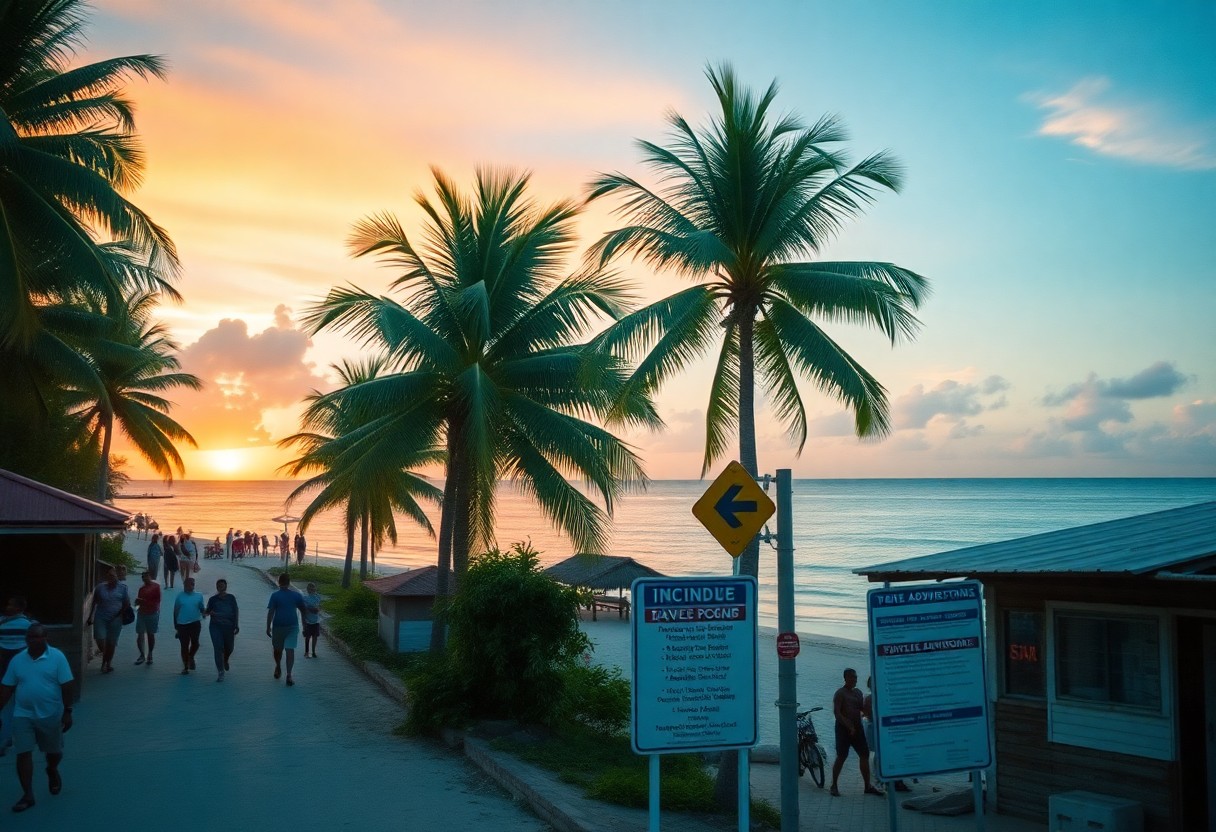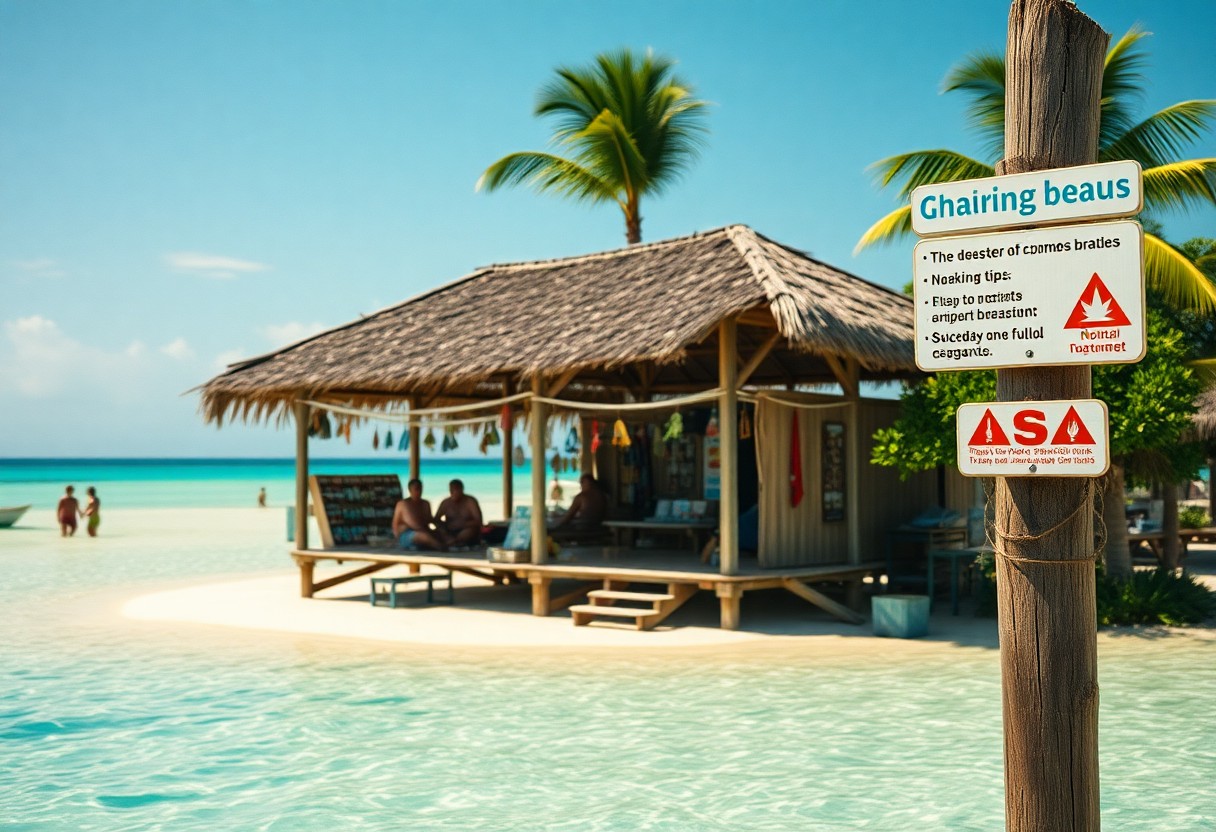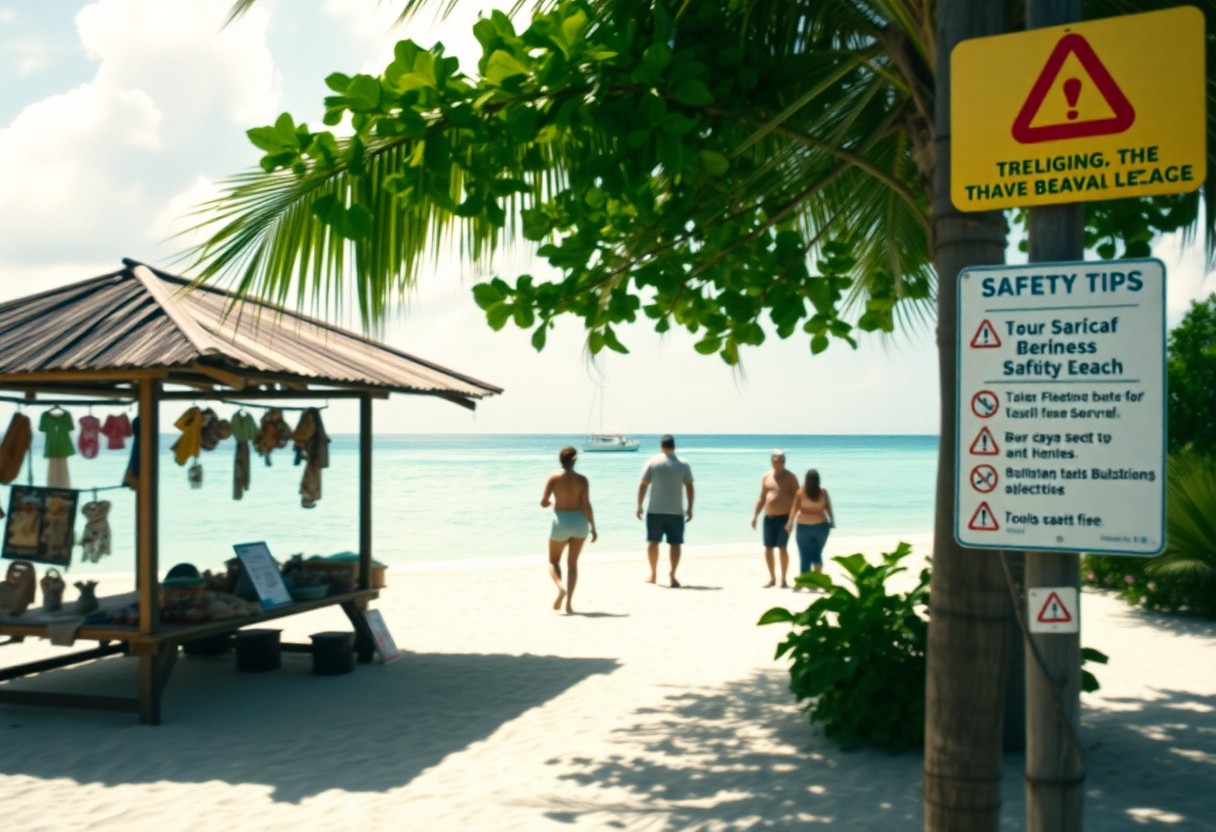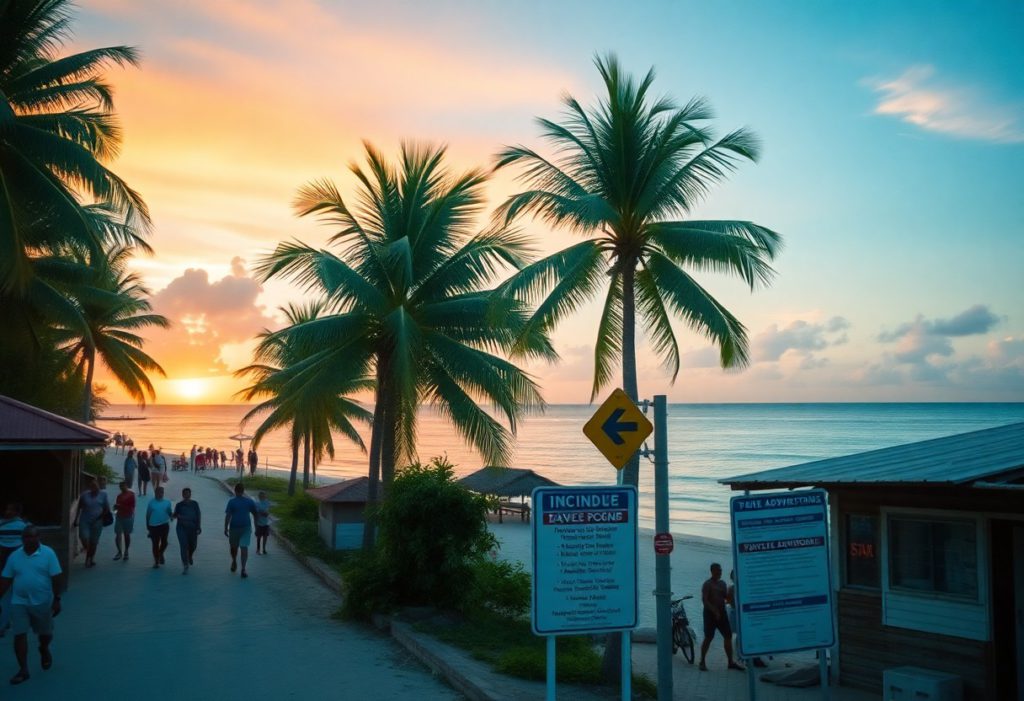Welcome to Your Detailed Travel Guide for Safe Adventures in Belize:
Over the years, Belize has cultivated a diverse reputation among explorers seeking tropical getaways. While some travel destinations may deter visitors due to concerns regarding safety and security, Belize offers a well-rounded travel adventure where caution and awareness are your strongest allies. Certain urban areas, particularly Belize City, may report higher crime rates; however, the majority of popular tourist locations remain comparatively safe when appropriate precautions are taken. Your overall enjoyment and experience will depend on understanding local conditions, staying vigilant, and making informed choices about your journeys. By diligently researching neighborhoods, respecting local customs, and remaining alert, you can fully experience Belize’s breathtaking scenery, vibrant cultural heritage, and spectacular Caribbean attractions while effectively minimising any potential risks.
Proactively Identifying and Addressing Common Safety Concerns for Travelers
For those considering a visit to Belize, it is essential to comprehend the local safety landscape. While challenges do exist, thorough preparation can significantly enhance your travel experience. Safety issues can vary widely across different areas, with urban regions often presenting more risks compared to well-frequented tourist spots. Your proactive approach and precautionary measures are vital for ensuring a secure and enjoyable adventure.
Separating Media Stereotypes from the Authentic Experience of Belize
Media portrayals often depict Belize through a sensationalised lens, emphasising crime and perceived dangers. Nevertheless, the reality is far more complex. You will discover that:
- Most tourist destinations are unexpectedly safe
- Local communities are usually warm and welcoming
- Negative representations fail to capture the full spectrum of experiences
- Implementing appropriate travel precautions can greatly reduce risks
Viewing Belize from a perspective free of stereotypes allows for a more nuanced understanding of the country.
| Media Representation of Belize | Actual Experience in Belize |
|---|---|
| High Crime Rates | Varied Safety Levels |
| Dangerous Everywhere | Safe Tourist Areas |
| Constant Threat | Manageable Risks |
| Negative Image | Positive Experiences |
Examining Crime Rate Statistics in Belize
In addition to grasping crime statistics, it’s crucial to contextualise the data. Belize displays varied crime rates across different areas, with urban centres such as Belize City showing higher incidents compared to coastal and tourist hotspots.
Thanks to extensive data collection, it becomes evident that crime rates can fluctuate. Specific neighbourhoods and socioeconomic factors significantly influence these statistics. Urban centres generally report elevated crime rates, while tourist areas typically maintain much lower crime levels.
Understanding the Difference Between Violent and Property Crimes in Belize
Violent crimes in Belize are predominantly concentrated in certain urban locales. Most tourist destinations exhibit relatively low rates of violent crime, with incidents often stemming from local disputes rather than targeting visitors.
Grasping the distinction between violent and property crimes is essential. Property crimes, including theft, are more prevalent, highlighting the need for personal vigilance. It is wise to protect your belongings, avoid displaying expensive items, and remain alert to minimise any potential risks.
Comprehending Regional Variations in Safety Throughout Belize
It is crucial to recognise that safety levels vary considerably across Belize’s regions. Your travel experience can differ greatly depending on the area you visit. Some regions report higher crime rates, whereas others are considered relatively safe for tourists. Conducting thorough research and carefully planning your itinerary, focusing on well-travelled routes and recommended destinations, is essential.
Contrasting Tourist Zones with Non-Tourist Areas
Contrary to popular belief, tourist zones in Belize are generally much safer than non-tourist regions. Favoured destinations such as Ambergris Caye and Placencia feature enhanced security measures and a more visible police presence. Non-tourist areas, particularly within urban centres like Belize City, can present higher risks for travellers, necessitating increased caution and awareness.
Evaluating Safety Levels in Coastal Destinations Compared to Urban Areas
Regions such as coastal areas typically boast significantly lower crime rates than urban centres. You will find that beach towns like San Pedro and Caye Caulker often provide a more relaxed and secure atmosphere. Urban settings, particularly in parts of Belize City, can pose more complex safety challenges requiring careful navigation.
Advantages of Coastal Destinations for Travellers
Additionally, beach destinations present a more controlled environment for tourists. You’ll enjoy less crowded spaces and more community-oriented settings. Coastal regions frequently have a robust tourism infrastructure, with local businesses and residents more invested in creating a safe and welcoming atmosphere for visitors.
Ensuring Safety When Visiting Renowned Tourist Attractions
With appropriate precautions, most tourist attractions in Belize are quite safe. You’ll discover that famous sites like Xunantunich, the Great Blue Hole, and Hol Chan Marine Reserve have excellent security protocols in place. However, it is essential to adhere to standard travel safety practices, such as being aware of your surroundings.
Enhanced Safety Protocols at Tourist Attractions
Moreover, many tourist attractions employ dedicated guides and security personnel to ensure visitor safety. You can feel more secure knowing that these sites prioritise the protection of their guests. Local authorities and tour operators collaborate to create an environment where you can fully appreciate Belize’s incredible attractions with minimal risk.
Critical Practical Safety Recommendations for Travellers
Your safety strategy while in Belize should revolve around being informed and prepared. Adhere to these vital guidelines:
- Stay vigilant in urban areas
- Trust your instincts
- Avoid walking alone after dark
- Keep valuables discreet and secure
The essence of safety lies in maintaining situational awareness and making informed travel decisions.
Transportation Safety Guidelines for Visitors
When considering transportation safety, prioritise official licensed taxis and trustworthy transportation services. Use registered shuttle services or certified tour operators. Avoid unmarked vehicles and solo travel after dark. Always confirm taxi prices before getting in. The safest approach is to arrange transportation through your hotel or reputable tourism agencies.
Protecting Your Valuables to Prevent Petty Theft
Petty theft can occur in tourist areas, so taking precautions to secure your belongings is essential. Use hotel safes, opt for crossbody bags, and refrain from showcasing expensive jewellery or electronics. Keep wallets in front pockets and consider using money belts. The goal is to reduce opportunities for opportunistic thieves.
Establishing Communication and Emergency Contacts for Visitors
Upon your arrival, save local emergency numbers and embassy contacts. Carry a charged phone equipped with international roaming or a local SIM card. Keep both digital and physical copies of important documents accessible. The wisest travellers maintain multiple communication channels to ensure connectivity.

Navigating Nightlife Safely and Precautions After Dark
Many travellers enjoy the vibrant nightlife in Belize, but it’s essential to remain vigilant and aware of your surroundings. While most areas are inviting, the combination of alcohol consumption and late-night activities can increase potential risks. Stick to well-lit, populated areas and avoid walking alone after dark. Your personal safety depends on making wise choices, such as using trusted transportation, staying with friends, and maintaining situational awareness during your evening outings.
Identifying Areas to Avoid After Dark
A significant safety consideration in Belize is understanding which neighbourhoods may present risks. Southern Belize City and certain urban areas show higher crime rates that can pose serious dangers after sunset. You should research specific districts beforehand and consult local guides or accommodation staff about which areas to avoid during nighttime hours.
Enhancing Safety Through Group Travel and Reputable Guides
Every nighttime outing can be made safer when you travel with companions. Group travel significantly reduces your vulnerability to potential criminal activities. Hiring licensed, professional guides who understand local dynamics adds an additional layer of security and local insight during your evening explorations.
Understanding group dynamics and selecting guides requires thoughtful consideration. Professional tour operators with established reputations offer structured experiences designed to minimise risks. Always verify guide credentials, read reviews, and select organisations known for prioritising tourist safety. Local recommendations and tourism board certifications can assist you in making informed decisions regarding which guides to trust.
Safety Overview of Popular Bars and Nightclubs
Reputable establishments in tourist areas such as San Pedro and Placencia generally uphold high safety standards. You should opt for venues that feature visible security, controlled entry points, and well-managed environments. Monitoring your drink, staying aware of your surroundings, and moderating alcohol consumption are essential strategies for responsibly enjoying Belize’s nightlife.
Further insights into bar and club safety underscore the importance of proactive personal management. You must be strategic regarding your nighttime entertainment choices. Choose venues frequented by both locals and tourists, avoid isolated locations, and maintain communication with your travel companions. Utilising official taxi services or pre-arranged transportation can significantly enhance your safety while enjoying Belize’s vibrant evening scene.
Here’s the content for the chapter on Understanding Local Law Enforcement:
Understanding Local Law Enforcement in Belize
Despite facing various challenges, Belize’s law enforcement operates with varying degrees of effectiveness across different regions. Police resources are limited, particularly in rural areas, which can impact response times and crime prevention. You’ll find that while urban centres like Belize City have a more concentrated police presence, smaller towns may lack robust security infrastructure.
Overview of Police Presence Across Belize
With approximately 1,500 active police officers serving the entire nation, law enforcement coverage is relatively sparse. Expect police visibility to be more pronounced in tourist areas and major cities, but less consistent in remote locations. Your awareness and personal safety precautions remain crucial throughout your travels.
Navigating Local Law Enforcement for Incident Reporting
In Belize, reporting procedures can be bureaucratic and potentially time-consuming. It’s important to remain patient and prepare documentation when filing any official reports. Local police stations typically require detailed statements, and communication may be challenging if you’re not fluent in Spanish or Kriol.
When reporting an incident, bringing a translator, if possible, can be beneficial; carry multiple copies of your passport, and meticulously document everything. Foreign visitors are advised to contact their embassy for additional assistance during legal interactions, as navigating the local system can be complex and challenging.
Local Emergency Resources and Contact Information
An emergency number network exists, with 911 serving as the primary contact for police, medical, and fire services. You’ll find these services to be more responsive in urban areas, though there may be delays in more remote regions.
The emergency infrastructure in Belize varies greatly between urban and rural areas. Major cities like Belize City boast more sophisticated emergency response systems, while smaller towns may have limited resources. Always have backup communication methods available, and consider acquiring travel insurance that includes emergency evacuation coverage.
Health and Safety Services Available in Belize
All health and safety services in Belize are designed to support travellers, offering a wide range of medical and emergency resources. Public and private healthcare facilities are accessible, though the quality and availability can vary based on location. More comprehensive medical services are found in larger cities such as Belize City and San Ignacio, while rural areas might have limited healthcare options.
Hospitals and Medical Facilities: What to Anticipate
In addition to the main hospitals in urban centres, Belize provides medical care through clinics and smaller healthcare facilities. Private hospitals like Belize Medical Associates offer higher-standard treatments, while public hospitals provide basic medical services. Be prepared for possible variations in medical infrastructure, and recognise that more complex medical procedures may require evacuation to another country.
Recommended Vaccinations and Health Precautions
Health precautions are crucial when visiting Belize. You’ll want to consult your healthcare provider regarding recommended vaccinations such as Hepatitis A, Typhoid, and routine immunisations. Depending on your travel plans, additional vaccines may be advisable to safeguard against potential health risks in the area.
To protect against mosquito-borne diseases like Zika and Dengue, employ preventive measures. Use high-quality insect repellent, wear long-sleeved clothing, and choose accommodations that feature adequate screening. Drink bottled water and exercise caution when consuming uncooked foods to minimise the risk of gastrointestinal issues.
Insurance: Understanding Your Coverage Needs
When it comes to international travel, comprehensive health insurance is essential. Ensure your policy includes medical evacuation and emergency treatments in Belize, as healthcare expenses can be substantial for travellers requiring specialised care.
Beyond basic coverage, take the time to review your insurance policy’s specific terms. Look for plans that provide comprehensive medical coverage, emergency medical transportation, and potential repatriation services. Consider obtaining additional travel insurance that offers robust protection against unforeseen health challenges during your Belizean adventure.
Wildlife and Nature Safety Recommendations for Explorers
As you navigate Belize’s diverse ecosystems, you’ll find that wildlife encounters can be both thrilling and potentially hazardous. The country's rich biodiversity encompasses tropical forests, marine environments, and countless animal species. While most wildlife interactions are safe when approached with respect, always keep your distance and adhere to local guidance to ensure your safety and protect the natural habitat.
Identifying Hazards in Tropical Ecosystems
Tropical environments in Belize present unique challenges for travellers. Venomous creatures such as scorpions, snakes, and certain spiders inhabit the region, and you may encounter them during jungle or forest excursions. Insects like mosquitoes can also transmit diseases, so protecting yourself with suitable clothing and repellents is vital for a safe and enjoyable adventure.
Safe Practices for Nature Excursions
The most rewarding nature experiences in Belize necessitate careful preparation. Wear long-sleeved clothing, sturdy hiking boots, and utilise insect repellent to mitigate risks. Stay on designated trails, carry ample water, and inform someone about your intended route. Engaging a local guide can greatly enhance your safety and understanding of the environment.
Ensuring safety during nature exploration in Belize necessitates thorough planning. Research the specific area you plan to visit, understand potential wildlife interactions, and carry a complete first-aid kit. Be mindful of your physical fitness level, pack appropriate gear, and prepare for sudden weather changes. Professional guides can provide invaluable insights into navigating Belize’s complex natural landscapes.
Understanding Safe Interactions with Local Wildlife
Contrary to common beliefs, most Belizean wildlife typically avoids human contact. Dangerous animals like jaguars and crocodiles generally retreat when humans approach. However, you should never attempt to feed or touch wild animals, as this can provoke unpredictable reactions and potentially dangerous situations.
Belize's ecosystems offer wonderful opportunities for wildlife viewing. Understanding animal behaviour is vital for safe interactions. Maintain a respectful distance, use binoculars for observation, and follow the guidance of professional guides. Many wildlife reserves and national parks offer controlled, safe environments for observing diverse species without direct contact, ensuring both your safety and the animals’ well-being.
Enhancing Cultural Awareness and Respecting Local Customs
It is essential to acknowledge that understanding Belize’s cultural nuances is crucial for a safe and enriching travel experience. The country’s diverse ethnic landscape, which includes Creole, Garifuna, Maya, and Mestizo populations, creates a rich tapestry of traditions and social interactions that you’ll want to navigate with respect.
Understanding Local Traditions and Etiquette
In terms of Belizean culture, you’ll encounter a warm and welcoming society that values personal connections and mutual respect. Familiarising yourself with basic greetings in local languages, understanding social norms, and demonstrating genuine interest in local customs can significantly enhance your travel experience and interactions with residents.
Respectful Engagement with Local Residents
Upon arriving in Belize, approach interactions with openness and genuine curiosity. Locals appreciate travellers who display sincere interest in their culture and way of life.
It’s important to engage with locals respectfully, politely, and with a willingness to learn. Participate in conversations with humility, seek permission before taking photographs, and be mindful of personal space and cultural sensitivities.
Guidelines for Preventing Cultural Misunderstandings
While embarking on your journey, consider these guidelines to navigate cultural interactions smoothly:
- Learn basic Spanish or Creole phrases
- Dress modestly in rural and religious areas
- Ask permission before photographing individuals
- Always approach interactions with respect
Effective cultural navigation extends beyond mere adherence to rules:
- Understand non-verbal communication cues
- Observe local social dynamics
- Be patient and adaptable
- Embrace cultural differences with an open mind
Here’s the content for the Family Travel Safety section:
Ensuring Family Travel Safety During Your Belize Adventure
Belize generally provides a safe environment for family travellers, particularly when appropriate precautions are taken. Family-friendly resorts and tourist areas present secure settings for your vacation. While minor risks exist, most families can enjoy seamless experiences by staying aware and adhering to basic safety guidelines. Your preparation and situational awareness can significantly mitigate potential challenges during your Belizean exploration.
Essential Recommendations for Travelling with Children
Family travel in Belize requires careful planning. Consider these recommendations:
- Pack essential medical supplies
- Secure travel insurance
- Choose well-reviewed accommodations
- Keep children close in unfamiliar environments
Your family’s safety should be prioritised through proactive planning and vigilant observation.
Engaging Family-Friendly Activities for an Unforgettable Experience
The Belize Zoo, Xunantunich Maya ruins, and snorkelling tours present extraordinary activities for families. Numerous engaging experiences combine education with entertainment, ensuring memorable moments for all age groups.
Indeed, Belize offers an impressive array of child-friendly adventures. From exploring ancient archaeological sites to uncovering marine ecosystems, your children can partake in immersive learning experiences. Guided tours specifically designed for families enhance both safety and enjoyment during these explorations.
Ensuring Child Safety Across Various Environments
Once in Belize, maintain constant supervision of your children and establish clear safety protocols. Stay in well-lit areas, avoid isolated locations, and educate your children about basic safety awareness.
Children need comprehensive safety strategies when travelling internationally. Understanding local customs, potential risks, and maintaining open communication can greatly enhance your family’s security. Preventative measures and situational awareness are your best defences against possible challenges.
Considerations for Solo Adventurers in Belize
Unlike more conventional tourist destinations, Belize presents unique challenges and opportunities for solo travellers. You’ll discover a diverse landscape that necessitates careful navigation, both physically and culturally. Your personal safety relies on understanding local dynamics, staying vigilant, and making informed decisions regarding where and how to explore this vibrant Central American country.
Evaluating the Benefits and Risks of Solo Exploration in Belize
The essence of solo travel in Belize lies in an exhilarating blend of adventure and potential vulnerability. You can experience personal growth, cultural immersion, and unmatched freedom, while also confronting potential risks such as petty crime and unfamiliar terrain. Your awareness and preparation will profoundly influence your travel experience.
Strategies for Safe Solo Exploration
Solo travellers should emphasise safety through strategic planning. Here are essential recommendations:
- Stay in well-reviewed accommodations
- Utilise reputable transportation
- Avoid isolated areas after dark
- Maintain situational awareness
Recognising potential risks can enhance your enjoyment of a secure journey.
Risks in Belize necessitate thorough preparation. Additional safety strategies include:
- Learn basic Spanish phrases
- Keep digital copies of important documents
- Use secure communication methods
- Connect with local travellers
Recognising potential challenges allows for proactive risk management.
Community Resources for Solo Travellers
Belize provides numerous support networks for independent adventurers. Online forums, local tourism boards, and traveller communities offer valuable insights, safety tips, and emergency contacts to enhance your solo travel experience.
Consequently, solo travellers can tap into multiple resources to navigate Belize safely. Digital platforms, social media groups, and dedicated travel websites deliver real-time advice, connection opportunities, and practical guidance for exploring this captivating destination with confidence and security.

Preparing for Natural Disasters and Climate Considerations in Belize
All travellers should be aware of Belize’s natural hazards, including hurricanes, tropical storms, and occasional flooding. The country’s geographic location exposes you to seasonal environmental challenges that require careful preparation and awareness. Coastal and low-lying regions are particularly susceptible to extreme weather events, which can impact infrastructure and personal safety. Understanding these risks will aid you in planning a safer and more informed travel experience.
Understanding Hurricane Season and Preparedness Strategies
Belize’s hurricane season extends from June to November, presenting significant weather risks for travellers. You’ll want to monitor official weather forecasts and maintain a flexible travel itinerary. The peak months of August through October necessitate heightened caution due to the potential for severe tropical storms and hurricanes. Coastal areas are at the highest risk during these extreme weather conditions.
Managing Risks Associated with Heavy Rainfall and Flooding
With Belize’s tropical climate, heavy rainfall can lead to unexpected flooding, particularly in rural and low-lying regions. Be prepared for rapid changes in water levels and potential transportation disruptions. Rivers and coastal zones are especially vulnerable during periods of intense rainfall. Staying informed about local weather conditions is essential for your safety.
Establishing Emergency Plans and Evacuation Routes
Upon arriving in Belize, familiarise yourself with local emergency evacuation procedures. Identify safe routes, emergency shelters, and communication channels before any potential weather events. Your preparedness can significantly reduce risks during unforeseen natural incidents.
While navigating potential emergencies, consider registering with your country’s embassy, maintaining communication devices, and compiling an emergency contact list. Advance preparation can greatly enhance your ability to manage unexpected situations effectively.
Here’s the content for the chapter on Economic Factors and Crime:
Exploring Economic Factors Influencing Crime Dynamics in Belize
Crime in Belize is often not random; economic disparities play a significant role in shaping crime patterns. Unemployment and limited economic opportunities contribute to elevated crime rates in specific regions. Urban areas like Belize City experience more criminal activities directly linked to economic challenges. Socioeconomic factors play a crucial role in influencing crime statistics, particularly for young individuals facing limited prospects. This economic landscape presents intricate challenges for local law enforcement and community safety.
The Impact of Poverty on Crime Rates in Belize
Underneath Belize’s economic challenges, poverty emerges as a significant driver of criminal behaviour. You’ll observe that areas with high unemployment rates typically experience more property crimes and street-level offences. Marginalised communities often grapple with limited resources, pushing some individuals towards desperate economic choices. This connection between economic hardship and criminal activity illustrates the systemic challenges confronting the country.
Gaining Insight into Local Economic Conditions
The economic landscape of Belize reveals complex dynamics that impact social stability. You’ll discover that tourism, agriculture, and offshore services are the primary economic sectors. Income inequality remains a persistent issue, with significant disparities between urban and rural regions. Economic opportunities are unequally distributed, leading to potential tensions within communities.
A deeper examination shows that Belize’s economic structure involves intricate interactions between global markets and local resources. You’ll find that international trade, especially in agricultural exports and tourism, significantly influences national economic health. The country’s economic resilience relies on diversifying income streams and devising sustainable development strategies.
Empowering Local Economies Through Responsible Tourism Practices
Among the most effective strategies for travellers, supporting local economies responsibly can contribute to community development. You’ll want to engage in ethical tourism practices, favouring local businesses and community-based experiences. Direct economic support can help alleviate poverty-driven crime and foster positive interactions between visitors and residents.
Safely navigating economic support necessitates a thoughtful approach. You’ll benefit from researching reputable local enterprises, participating in community-based tourism, and understanding cultural contexts. Responsible travellers can make meaningful contributions by purchasing local products, utilising local guides, and respecting community economic dynamics. Your informed choices can help create sustainable economic opportunities and reduce potential safety risks.

Sharing Personal Experiences and Testimonials from Fellow Travellers
Not every travel experience is identical, and Belize presents a diverse range of personal stories that highlight both safety challenges and remarkable adventures. Your understanding of the destination can be greatly enhanced by listening to travellers who have explored this Central American country. While some narratives focus on potential dangers, many emphasise the warm hospitality, stunning landscapes, and unforgettable experiences that make Belize a truly unique travel destination.
Traveller Accounts: Positive Experiences and Cautionary Tales
By examining traveller narratives, you’ll gain a nuanced perspective on Belize’s safety landscape. Tourists generally report positive interactions, with many praising the friendliness of local communities and the breathtaking beauty of nature. However, some travellers also recount cautionary tales regarding petty theft in urban areas and emphasise the importance of maintaining situational awareness during your stay.
Analysing Personal Accounts of Safety Issues in Belize
A compilation of traveller experiences reveals common patterns of safety concerns and recommended precautions. Urban areas like Belize City necessitate heightened vigilance, while tourist hotspots typically offer more secure environments. Understanding these insights can empower you to make informed decisions about your travel plans and personal safety strategies.
Positive traveller accounts consistently underscore the significance of respect, cultural awareness, and basic safety practices. Engaging with local communities, utilising reputable transportation, and securing well-reviewed accommodations can substantially enhance your travel experience while minimising potential risks in Belize.
Lessons Learned from Experiences of Fellow Travellers
A recurrent theme from seasoned travellers is the necessity for situational awareness and preparedness. Implementing simple safety strategies, such as securing valuables, avoiding isolated areas at night, and maintaining a low profile, can facilitate a more confident navigation of Belize.
At the heart of successful travel in Belize is a balanced approach to safety and adventure. Experienced travellers advise staying informed, respecting local customs, and maintaining a flexible attitude. By learning from others’ experiences, you can develop a comprehensive understanding of how to enjoy Belize while minimising potential risks.
Frequently Asked Questions for Travellers Considering Belize
Q: What are the main safety concerns for travellers in Belize?
A: Belize experiences moderate crime rates, primarily concentrated in urban areas like Belize City. Travellers should exercise standard precautions, such as avoiding isolated areas at night, securing personal belongings, and staying aware of their surroundings. While petty theft and occasional street crime exist, most tourist destinations maintain relatively safe environments.
Q: How does crime in Belize compare to other Central American countries?
A: Belize has higher crime rates compared to neighbouring countries like Costa Rica or Panama. However, tourist zones like Ambergris Caye, Placencia, and San Ignacio have enhanced security measures and lower crime incidents. Violent crime rarely targets tourists, but maintaining awareness of your surroundings is still essential.
Q: What health precautions should travellers take when visiting Belize?
A: Travellers should obtain recommended vaccinations, including hepatitis A, typhoid, and routine immunisations. Mosquito-borne diseases like dengue and Zika are prevalent, so using insect repellent and wearing protective clothing is advisable. Drink bottled water, avoid raw foods, and consider travel health insurance for comprehensive medical coverage.
Q: Are transportation methods safe in Belize?
A: Public transportation and taxis in Belize can be safe when using reputable services. Water taxis between islands operate regularly with established safety protocols. When renting vehicles, choose established companies, inspect the car thoroughly, and purchase comprehensive insurance. Night driving requires extra caution due to limited road infrastructure.
Q: What strategies help minimise personal risk while travelling in Belize?
A: Effective risk mitigation includes staying in well-reviewed accommodations, joining guided tours, avoiding displaying expensive jewellery or electronics, using official transportation services, and maintaining communication with local contacts. Register with your country’s embassy, keep digital and physical copies of important documents, and adopt a low-profile approach to personal safety.
The Article Is Belize Safe or Dangerous? Myths, Facts, and Travel Advice appeared first on Belize Travel Guide
The Article Belize Safety: Myths, Facts, and Travel Tips Revealed Was Found On https://limitsofstrategy.com


